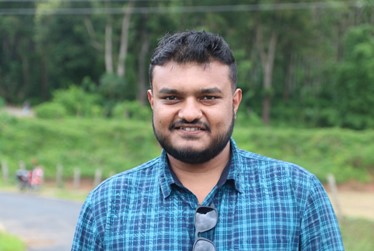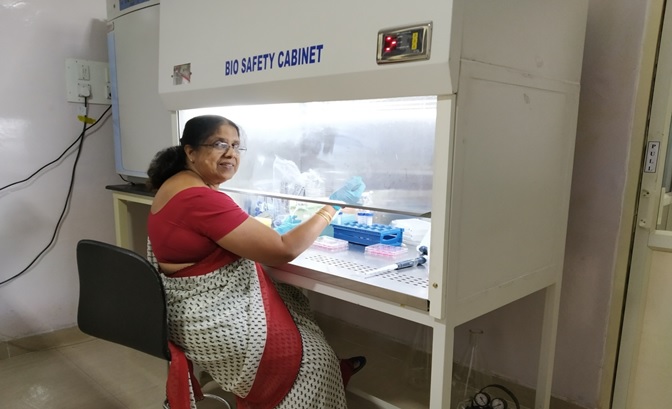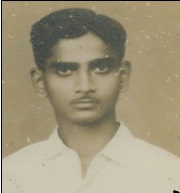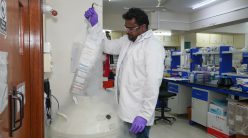Lab techs and project assistants, toolmakers and maintenance crew make invaluable contributions to research projects

Sandeep Eswarappa, an assistant professor in the Department of Biochemistry in IISc, works with small, almost microscopic animals called tardigrades. As a young investigator setting up a new lab with an unfamiliar model system, he needed all the help he could get. Harikumar RS, a project assistant, provided exactly what was required. “Hari was hardworking and passionate about science, and took ownership of the tasks he accepted,” Eswarappa says. “He worked with utmost sincerity, and established tardigrade cultures from scratch in our lab.”
Apart from the Principal Investigator (PI), graduate students and postdoctoral researchers, most labs in IISc and other institutions have support staff like Harikumar. There are also lab technicians (called lab techs informally), tool makers and other backstage crew who contribute significantly to research. They spend hours standardising protocols, training graduate students, keeping a tab on reagents and equipment, or re-doing experiments with newly calibrated machines. A respectable research story is rarely the work of a single human. It takes a village.
Let us consider the work of a typical lab tech from a biology lab. She will have to keep the lab stocked with disposables and consumables, make sure the equipment is in working condition, and even train new students. She will need to have tricks up her sleeves to make super-efficient competent cells (cells that can take up foreign DNA from their environment), and dissect out ovaries from a fruit fly in a jiffy. She will need to know every lab safety rule, and what to do in times of crises. She will have the contact numbers of all the vendors … including that Thai take-out place round the corner.
Lab techs and other support staff are often the backbone of the lab
Lab techs and other support staff are often the backbone of the lab. PIs go to great lengths to find, train and nurture academic relationships with these skilled workers. Each is as cherished as an intuitive surgical nurse by a surgeon, or a physiotherapist with a magical touch by a team of athletes. The reminiscences shared by Mary Nirmala Sarkar and SK Aswathamegowda on the occasion of the centenary celebrations of the Department of Biochemistry illustrate how crucial support staff are to the pursuit of research.
Sarkar, who retired recently, joined the department as a project assistant in her twenties. “Here’s where I was introduced to tissue culture, animal handling, and raising antibodies,” she recalls, “and here I am today, almost four decades later, still blessed to be working among the most ingenious minds, doing what I love most.”

During her time at the department, Sarkar also witnessed many changes in the responsibilities of a project assistant over the years. “We did not have the luxury of disposable pipettes and bottles. Plugging the pipettes, putting them in different cones and autoclaving was an enormous task. I recall getting the glass tubing from the stores and getting them cut from the glass blowing section to make Pasteur pipettes. Distilling water and ethanol was a routine process.”
However, in the 21st century, with the explosion of companies providing glassware and plasticware and experts who maintain the equipment only a phone call away, many responsibilities of a lab tech have become redundant. Even carpenters are not needed, now that modular furniture is the norm. Still, project assistants like Sarkar are crucial. They take care of logistics, and provide technical expertise and continuity in the lab with a constant turnover of students and postdocs.
Aswathamegowda, who worked as a mechanic in the department workshop from 1972 to 2005, provided another kind of support to the labs. “[We had] one small lathe and a drilling machine. We worked sheet metal to make test-tube racks and metal trays,” he writes, describing his work in the early years.
Aswathamegowda recalls with guileless pride, “I had the responsibility of shifting heavy imported instruments like centrifuges. With the help of our supporting staff, I took them up the stairs from the ground floor to the first and second floor labs. It was very tough and risky work. By God’s grace, no instruments got damaged, and no one was injured.”

Encouraged by the researchers in the department, Aswathamegowda soon learnt to fabricate gel boxes, gel combs and apparatuses to conduct routine biochemical investigations like running DNA gels and SDS pages. His skills were noticed, and he started getting orders from other research institutes. He later even started his own fabrication company.
While the stories of Sarkar and Aswathamegowda are heartening, the contribution of support staff to research is not always acknowledged. Some PIs, however, find ways to recognise their efforts by giving them authorship in research publications. These publications, with their well-defined questions, logical succession of experiments, clean results and neat graphs, do not always reflect the sweat and tears of the support staff. Eswarappa, for instance, ensured that Harikumar is an author on multiple research papers from his lab.
In 1996, in an unprecedented move, the Department of Biological Sciences at the Tata Institute of Fundamental Research (TIFR), Mumbai, conferred honorary PhD degrees on two of their lab techs. This gesture was an expression of appreciation, a show of respect for their many years of ‘behind-the-scenes’ participation in every research project, and their meticulous lab management.
It is hard to overestimate just how invaluable these lab techs and support staff are to their PIs. Ask young faculty members whom they would bring back from their postdoctoral research days to work in their new labs, an almost all of them would likely answer, “my lab technician.”




